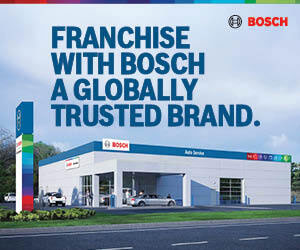Weighing The Pros And Cons Of Franchising vs. Traditional Business

Going into business for yourself is a major life decision. One path is to start your own business or buy an existing one. Another is to choose the franchising model and buy into a proven system with a known brand name. Each path has its own promise, as well as its perils. Once the choice is made, the question becomes what type of business to choose.
Passion and enthusiasm are key ingredients in steering a business from startup to success. Many customers of their favorite sub shop or pizza place think, “I’d love to own one of these!” That is, until they realize they’re not cut out for retail, managing teenagers, or spending 60 or 70 hours a week in their new restaurant for a year or two... or three. Choosing a business — and a business model — should be a “business decision.” After all, you’re in it to make money, right?
Weighing the benefits and costs of franchising against those a traditional (non-franchised) business should begin with a self-assessment. Are you able to follow a prescribed system, or do you need the freedom to innovate and experiment? Do you need total independence in every aspect, or can you follow a ready-made system 100 percent?
In terms of “cost/benefit,” there is a price to pay for buying into a franchise system. But there also is a price to pay in starting your own business. The pros and cons, detailed below, must be weighed in terms of both investment and personal values and goals.
Brand awareness
If you walk into any of the 40,000-plus Subways or McDonald’s around the world, you’re guaranteed your meal will be the same (or nearly) no matter where you are. That’s the franchise proposition of uniformity and replicability. Customers know this and seek out the reliability and familiarity of their favorite brands, which have been established over years or decades.
Control/autonomy
When you start your own business, you’re in control over every detail, large and small. With a franchise business, you sign an agreement to follow the rules laid out by the franchisor. (Remember, franchisees don’t “own” their franchise unit: they are awarded a license to use the franchisor’s brand name, operating system, equipment, uniforms, etc. that have been fine-tuned and perfected over many years.) Yes, you control your franchise unit in terms of the culture and values you set, and who you hire and fire, but you must follow the franchisor’s operating system.
Operating system
Would you rather invent the wheel, or buy one ready-made? If you’re the creative, innovative type, starting your own business is the way to go. A franchised business provides a complete, out-of-the-box business, ready to “plug and play.” Just follow the operating manual. If you can’t, fly solo.
Equipment and supplies
Outfitting your new business with everything you need to succeed means researching what equipment to buy, finding suppliers, and negotiating deals. You may buy a pizza oven that’s too big or buy more fresh food than you need; or you may buy one that’s too small and run short on capacity as your business grows, or run short on pepperoni on a busy evening or weekend. Franchisors can provide invaluable help in knowing both what and how much to buy — often at reduced prices.
Economies of scale
If you’re a sole entrepreneur, you have the buying power of one. If you’re a franchisee, your franchisor can negotiate bulk rates and pass along the savings to you. Also, having the power of a recognized brand behind you often eases the mind of a supplier in extending credit: if a successful franchisor is willing to trust you, vendors are more likely to do so as well.
Legal disclosure
Franchisors are required by law to disclose certain information about their business in documents regulated by federal and state law. If you’re looking to buy an existing business from an individual, can you (and your attorney) trust the seller? And if the seller disappears, where’s your recourse? Even if a franchisor opposes you in court, at least you have a fighting chance.
Financing
Starting your own business can cost less than buying a franchise, and many entrepreneurs have started on a shoestring budget and succeeded. But most new businesses require startup capital, especially for retail space and equipment. While most franchisors do not supply financing, many have relationships with lenders who will view that brand’s referrals more favorably than an independent business owner just starting out.
Marketing
If you’re Joe’s Pizza, you’re on your own when it comes to marketing and advertising. If you’re a Pizza Hut franchisee, you have the power of the brand’s multi-million-dollar national and regional marketing and advertising behind you. There’s a price to pay for these benefits: a monthly contribution to a national advertising fund. But if you’re Joe, every penny to market and advertise your business comes directly out of your bottom line.
Speed to market
You can build the most beautiful retail store or buy the perfect van for your mobile business and fill both with the most expensive equipment. That takes time, as well as money. Or you can sign up with a franchisor who’s done this hundreds of times and be handed a shopping list of exactly what you need to set up shop, allowing you to open for business more quickly than if you had to research it all on your own.
Faster ROI
No matter how grand your opening, when you start your own business it takes time to build a client base and local reputation. When you advertise a known brand name in your new market, customers come ready-made, and the cash starts flowing faster.
Training
You may be the best at what you do, but do you know how to manage a business, hire and train employees, market your product or service, keep the books, etc.? When you start your own business, you must learn all these things on your own, with “rookie mistakes” part of the learning curve. Franchisors provide new franchisees with extensive training in every aspect of their new business, from flipping burgers to which point-of-sale system to buy. And many offer advanced training to help you stay on top of your business as it grows.
Franchisor support
Most entrepreneurs, franchised or not, love what they do. In fact, they’re rather do what they love, which can result in neglecting how they manage their business. Additionally, caught up in the day-to-day details of such “mundane” details as taxes and supplies, they fail to innovate and to develop as leaders and executives. Many franchisors provide field support specialists to help keep their franchisees on track, training them to become managers and leaders “working on the business, not in it.”
Peer support
If you own your business, you can join the Chamber of Commerce, Rotary, or other local business organizations, so you’re not completely alone. As a franchisee, you receive ongoing support not only from your franchisor, but also from your fellow franchisees. This can be locally, regionally, at annual national conventions, through an online support network, or just by picking up the phone. Local business groups are invaluable for the networking connections they can provide, but who better to ask for help with your business than someone who’s already solved the problems you’re facing for the first time?
Product/service innovation
Introducing a new product or service that flops costs precious time and money. If you own a traditional business, it’s your time and money down the drain. Franchisors develop new products, try them in their company-owned stores or with other franchisees willing to test them. By the time McDonald’s introduced its new line of coffees, the kinks had already been worked out. So while it may cost a franchisee some big money to install new equipment or introduce a new store design, the ROI is more likely than with your own new great idea.
Site selection
There’s a lot of competition out there in the retail sector. Setting up your coffee and breakfast business on the wrong side of the street can severely hurt sales. You can hire a site selection expert, but what do they know about your business? A franchisor can provide teams of real estate experts, advanced site selection software, and years of experience in finding the best sites for their brand. They also can provide expert assistance negotiating leases with landlords — an oft-ignored, yet critical component of profitability.
Culture/fit
In your own business, the only person you have to get along with is yourself (and your customers and employees, if you want to have any). Many franchise experts describe the franchisor-franchisee relationship as a marriage. Unlike a marriage, you don’t sign on for life (it’s usually 5, 10, or 15 years), but you do need each other to succeed. That’s why it’s so important to ask if your values and goals align with those of the franchisor. They don’t award a license and say “See you in 10 years. Be sure to send us a check every month.” It’s an ongoing, win-win proposition.
Exit strategy/resale value
Selling an independent business can be very lucrative — but the pool of potential buyers is smaller than with a known brand. When faced with a choice between Carl’s Jr. and Fred’s Burger Boat, prospective business owners often opt for the safety and familiarity of a known brand over a private business, just as consumers do when looking for a burger. And in tough times if you need to sell you may have to do so at a bargain basement price — if you can find a buyer at all. With a franchise, there’s always a buyer of last resort: the franchisor, who can always buy your unit and run it as a company store until they find a suitable buyer.
Next: Buying a franchise: What’s this going to cost?
| Back: 3.3: Researching a Franchise Online |
Index |
Next: 4.2: The Costs Involved in Opening A Franchise |
Share this Page
| ADVERTISE | SPONSORED CONTENT |
Franchise Guides »
- Recent Guides
The Latest Franchise Guides for Opportunity Seekers - The Franchise Guide
An In Depth Analysis of the Franchise Industry - Franchise Buyers Guide
The First Steps to Franchise Ownership - Multi-Unit Buyers Guide
Featured Choices: |
Popular Choices: |
Featured Opportunities
| ADVERTISE | SPONSORED CONTENT |




 The franchise opportunities listed above are not related to or endorsed by Franchising.com or Franchise Update Media Group. We are not engaged in, supporting, or endorsing any specific franchise, business opportunity, company or individual. No statement in this site is to be construed as a recommendation. We encourage prospective franchise buyers to perform extensive due diligence when considering a franchise opportunity.
The franchise opportunities listed above are not related to or endorsed by Franchising.com or Franchise Update Media Group. We are not engaged in, supporting, or endorsing any specific franchise, business opportunity, company or individual. No statement in this site is to be construed as a recommendation. We encourage prospective franchise buyers to perform extensive due diligence when considering a franchise opportunity.